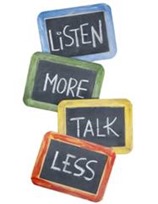
The tip for today is a very simple way to feel good, instantly – smiling.
The good thing about smiling is that it a two way street – smiling creates a happy feeling, and feeling happy makes you smile. It does not matter where you start – the feeling or the smile. When we experience joy, the muscles in our brain contract and start a positive loop of feeling even more joy. This is not a new science. As early as the 1870s, Charles Darwin first suggested that facial expressions did not just express emotions, but could actually induce them.
Smiling has been studied for years. In 1989, psychologist Robert Zajonc compared the mood of participants asked to make the long “eee” sound (which involves the same muscles as smiling) and those who were asked to make a long “ooo” sound (which involves the same muscles as frowning). Zajonc found that the people who made the “eee” sound felt much better.
Read How to Feel Good: Smiling »















